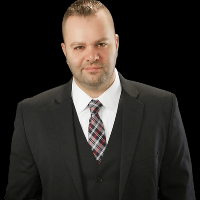Fort Howard Misdemeanor Lawyer, Maryland
Sponsored Law Firm
-
 x
x

Click For More Info:
-
Roper & DiBlasio LLP
401 Headquarters Dr Ste 202 Millersville, MD 21108» view mapDivorce and Family Law Our Mission is Your Success
Roper & DiBlasio is a general practice law firm working within the local community to assist businesses, homeowners, and individuals with their legal needs.
800-785-7781
Charles Waechter
✓ VERIFIEDCriminal, DUI-DWI, Felony, Misdemeanor, Internet
Annapolis Criminal Defense Law Firm If you face criminal charges, an experienced and respected defense lawyer can help protect your rights, evaluat... (more)
Adam Daniel Perrelli
Misdemeanor, Criminal, Personal Injury, Malpractice, Accident & Injury
Status: In Good Standing
Barrett Ryan Schultz
Motor Vehicle, Misdemeanor, Criminal, Accident & Injury
Status: In Good Standing Licensed: 18 Years
Bryan Woodston Scott
Dispute Resolution, Accident & Injury, Misdemeanor, DUI-DWI, Employment
Status: In Good Standing
Elan Benjamin Rafael
Misdemeanor, Felony, Criminal, Accident & Injury
Status: In Good Standing Licensed: 20 Years
Eugene Peter Melcavage
Misdemeanor, Administrative Law, Criminal
Status: In Good Standing Licensed: 27 Years
Gregory Philip Jimeno
Federal Appellate Practice, Workers' Compensation, Misdemeanor, Car Accident
Status: In Good Standing
 Kurt Roper Millersville, MD
Kurt Roper Millersville, MD Practice AreasExpertise
Practice AreasExpertise


